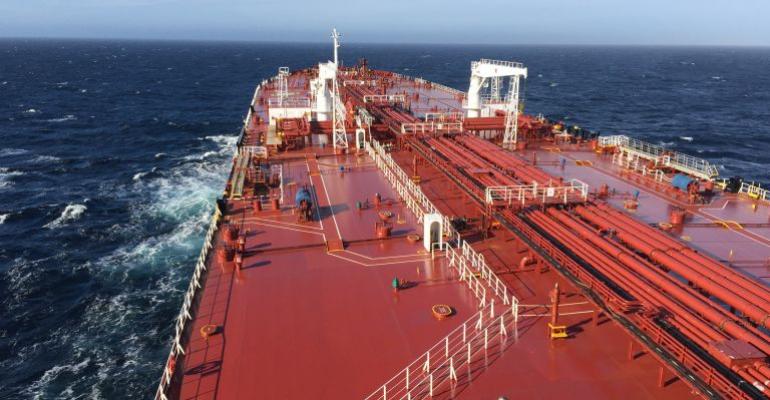The redelivery of vessels from floating storage into the spot trading fleet may put pressure on spot rates.
Teekay Tankers observed that Opec+ supply cuts are expected to remain in place throughout 2020 into 2021, although Opec+ has indicated that the cuts may reduce over time.
“As global oil supply and demand adjust, we may see a period of oil inventory destocking emerge, which may dampen tanker demand in the medium term,” Teekay Tanker wrote.
However, tanker supply fundamentals offer a counterbalance with a much lower tanker orderbook than in previous cycles.
The tanker orderbook, measured as a percentage of the existing fleet, is currently at a 23-year low of around 8%. This compares to an orderbook of around 20% at the peak of the last market cycle in 2015 and just under 50% in 2008.
“New vessel ordering remains low due to financing constraints and uncertainty over what type of fuel and propulsion system to choose given new technology developments and future environmental legislation, such as IMO 2030,” Teekay Tankers commented.
“Finally, the global tanker fleet is aging, with 370 mid-size tankers, or 19% of the fleet, currently 15 years of age or older, and thus likely to face scrapping in the coming years. Taking all of these factors into account, net tanker fleet growth is expected to be very low for at least the next two years.”
In the near term, Teekay Tankers anticipates that rates will remain volatile due to a continued mismatch between oil supply and demand and an ongoing need for floating storage.
“The medium term outlook is far less certain, and a period of lower oil supply coupled with inventory destocking may weigh on tanker demand. However, very low tanker fleet growth due to a small orderbook and high scrapping may lead to a faster rebalancing than in previous market cycles,” it added.
Copyright © 2024. All rights reserved. Seatrade, a trading name of Informa Markets (UK) Limited.
Add Seatrade Maritime News to your Google News feed.  |

